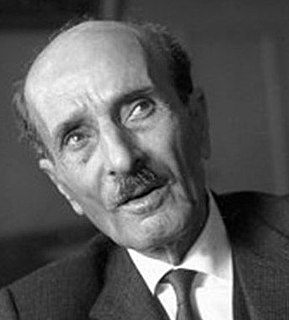A Quote by Seneca the Younger
What does reason demand of a man? A very easy thing-to live in accord with his own nature.
Related Quotes
Secondly, man sins against nature when he goes against his generic nature, that is to say, his animal nature. Now, it is evident that, in accord with natural order, the union of the sexes among animals is ordered towards conception. From this it follows that every sexual intercourse that cannot lead to conception is opposed to man's animal nature.
One man watches a river flow by. If he does not wish it to flow, to change ceaselessly in accord with its nature, he will suffer great pain. Another man understands that nature of the river is to change constantly, regardless of his likes and dislikes, and therefore he does not suffer. To know existence as this flow, empty of lasting pleasure, void of self, is to find that which is stable and free of suffering, to find true peace in the world.
When you are in accord with nature, nature will yield its bounty. This is something that is coming up in our own consciousness now...recognizi ng that by violating the environment in which we are living, we are really cutting off the energy and source of our own living. And it’s this sense of accord, so that living properly in relation to what has to be done in this world one fosters the vitality of the environment.
A priest is a man vowed, trained, and consecrated, a man belonging to a special corps, and necessarily with an intense esprit de corps. He has given up his life to his temple and his god. This is a very excellent thing for the internal vigour of his own priesthood, his own temple. He lives and dies for the honour of his particular god. But in the next town or village is another temple with another god. It is his constant preoccupation to keep his people from that god. Religious cults and priesthoods are sectarian by nature; they will convert, they will overcome, but they will never coalesce.
And therefore, as when there is a controversy in an account, the parties must by their own accord, set up for right Reason, the Reason of some Arbitrator, or Judge, to whose sentence, they will both stand, or their controversy must either come to blows, or be undecided, for want of a right Reason constituted by Nature; so is it also in all debates of what kind soever.
There is a fundamental moral difference between a man who sees his self-interest in production and a man who sees it in robbery. The evil of a robber does not lie in the fact that he pursues his own interests, but in what he regards as to his own interest; not in the fact that he pursues his values, but in what he chose to value; not in the fact that he wants to live, but in the fact that he wants to live on a subhuman level.






































